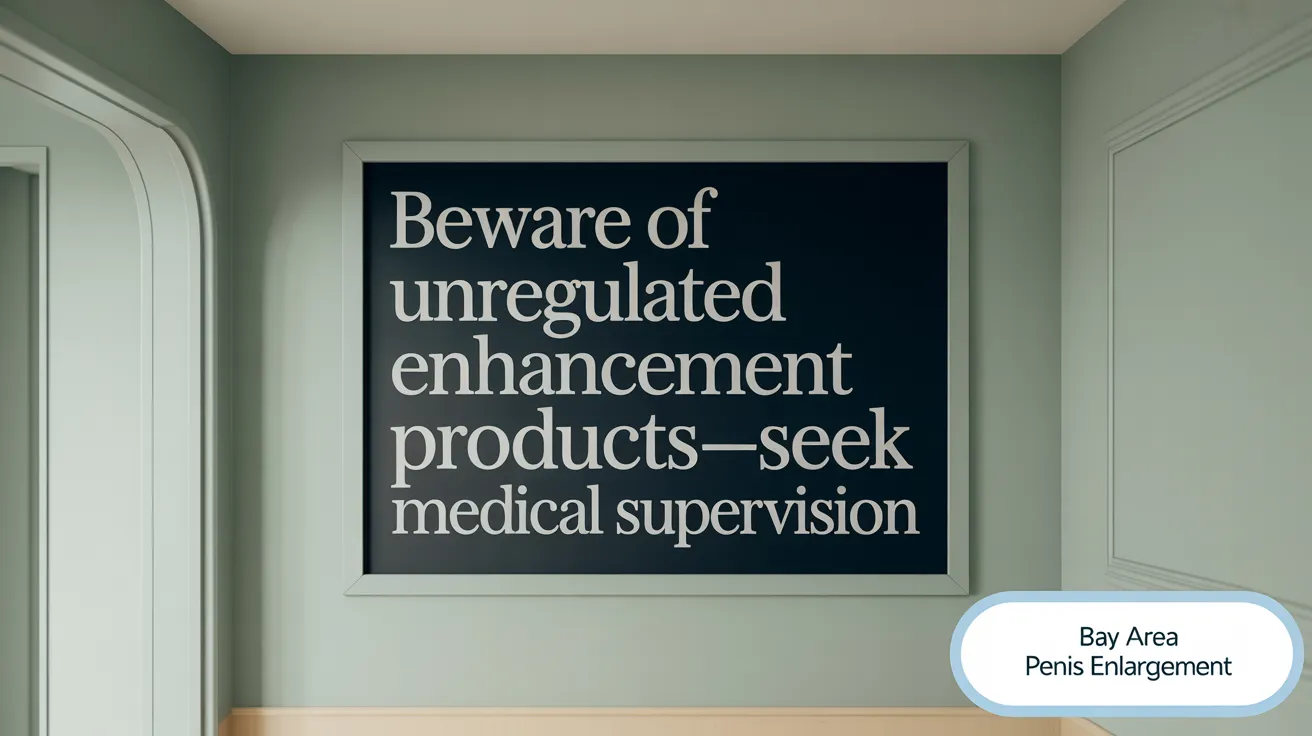Introduction to Safety and Privacy in Male Enhancement Procedures
Importance of safety in male enhancement procedures
Safety is paramount in male enhancement treatments to prevent complications such as infection, scarring, erectile dysfunction, and dissatisfaction with results. Procedures performed by qualified surgeons in sterile, regulated environments significantly reduce risks. Comprehensive preoperative assessments, including evaluating physical and psychological health, help ensure patient readiness and informed consent.
Role of privacy in patient care
Patient privacy is rigorously protected in male enhancement clinics, adhering to strict confidentiality regulations such as HIPAA. This commitment safeguards sensitive health information and supports discreet treatment experiences. Respecting privacy extends to safeguarding personal data, offering confidential consultations, and maintaining environments that promote patient comfort and trust.
Overview of procedures offered
Male enhancement options include surgical methods like suspensory ligament release and girth augmentation using autologous tissue or biocompatible implants. Non-surgical treatments encompass injectables, vacuum devices, and other minimally invasive techniques tailored to individual needs. Clinics emphasize natural, lasting results with a focus on safety, patient education, and personalized care plans designed by experienced specialist surgeons.
Medical and Surgical Options: Ensuring Safety Through Expertise

What surgical and non-surgical options are available for penile enlargement, and how is safety ensured?
Penile enlargement methods encompass both non-surgical penile enlargement methods and surgical approaches, each with varying degrees of effectiveness and safety considerations. Non-surgical options include vacuum devices for penile enlargement, injectables for penile enlargement, and penile enlargement pills and supplements. However, their efficacy is limited, and many lack robust scientific validation. Some oral supplements and over-the-counter products pose health risks due to unregulated ingredients as described in dangers of sex drive pills.
Surgical techniques, considered the gold standard for permanent results, involve more direct interventions. Lengthening is primarily achieved through suspensory ligament release surgery, which can increase flaccid penis length by approximately 1 to 2 centimeters. Girth enhancement may involve autologous fat transfer for penile girth enhancement, dermal grafts for penile enlargement, or biocompatible materials in penile surgery to enhance penile circumference.
One advanced surgical option is the Diamond XL 360™ procedure, a minimally invasive, dual technique designed to simultaneously increase both length and girth tailored to individual anatomy. This procedure emphasizes preserving sensitivity and erectile function, contributing to patient safety and satisfaction.
To ensure optimal safety outcomes, these surgeries must be performed exclusively by trained urologic surgeons within sterile, accredited medical facilities. Strict adherence to sterile protocols, comprehensive preoperative assessments, and postoperative care reduce risks such as infection, scarring, temporary or permanent sensory changes, and erectile dysfunction as highlighted in penis enlargement surgery overview and penis enlargement risks. Educating patients about potential risks and recovery expectations also supports safer outcomes.
In summary, while non-surgical methods may provide temporary or minimal improvement, surgical options under expert care offer more reliable and lasting penile enlargement with manageable risks when executed within proper medical frameworks.
Risks, Complications, and Managing Patient Expectations

What are the primary risks and complications of male enhancement procedures and how can patients be prepared?
Male enhancement surgeries carry several common risks, including infection (occurring at about 1% despite antibiotics), swelling, bruising, scarring, uneven cosmetic results, and changes in sensation which may be temporary or, less commonly, permanent. These risks highlight the necessity of choosing experienced qualified urologic surgeons and sterile surgical environments to minimize complications.
Injectable treatments and fillers for penile girth enhancement introduce additional complications such as formation of lumps and uneven tissue texture. Allergic reactions and infections are risks particularly heightened by unlicensed or poor-quality products. Moreover, filler effects are typically temporary, lasting 12 to 24 months, requiring patients to consider repeated treatments which may lead to additional risk. For more details, see Penile Girth Injection Complications and Risks of Penis Enlargement Fillers.
Psychological factors are critical in patient outcomes. Conditions like penile dysmorphophobia (PDD) and small penis anxiety (SPA) can distort self-perception, potentially leading to unnecessary or risky surgical interventions. Therefore, thorough preoperative psychological assessment is vital to determine patient readiness and motivation. Relevant information can be found in Penis enlargement surgery overview.
Informed consent processes must include comprehensive discussions on the risks, possible outcomes, and limitations of each procedure. Patients should be made aware of recovery protocols, which differ by treatment but often require several weeks of rest and abstinence from sexual activity to ensure healing and optimize results.
Adequate postoperative care and follow-up are essential to identify and manage complications early and support patient satisfaction. Clinics adhering to strict protocols, transparent communication, and patient education foster safer experiences and realistic expectations for those seeking male enhancement procedures. See more on Patient Privacy Practices and Safety, and Penis Enlargement Risks and Safety.
Protecting Patient Privacy and Confidentiality in Male Enhancement Clinics

How do male enhancement clinics ensure patient privacy and address sensitive information?
Male enhancement clinics maintain rigorous patient privacy standards by fully complying with HIPAA Compliance and following detailed Patient Privacy Practices. They ensure that protected health information (PHI) is used only for necessary purposes such as treatment, billing, healthcare operations, education, approved research, appointment management, and as required by law—with explicit patient consent.
Patients retain rights to access their medical records, request amendments, restrict certain uses, and receive communications through confidential channels, as described in these resources. Clinics foster patient trust by conducting private consultations within secure, state-of-the-art environments that prioritize discretion and comfort.
Additionally, clinics carefully manage sensitive data like biological sex information. Because biological sex disclosure can affect privacy, especially for patients with gender identity considerations or genetic anomalies, clinics may redact or withhold non-essential details to protect dignity and personal privacy, supported by approaches discussed in Privacy concerns in forensic biological sex reporting.
These practices ensure that patients seeking male enhancement treatments can access expert care with confidence and confidentiality, supported by transparent policies and tailored privacy safeguards.
Risks of Unregulated Products and the Importance of Medical Oversight

What are the safety concerns regarding unregulated sexual enhancement products, and why is medical supervision crucial?
Over-the-counter sexual enhancement products often contain hidden active ingredients such as sildenafil and thiosildenafil, typically in unknown and potentially dangerous dosages. These adulterated substances pose significant health risks, especially because these products lack FDA regulation and thorough testing. Without medical supervision, men may unknowingly ingest harmful compounds that can lead to serious side effects including severe drops in blood pressure, heart attacks, strokes, and priapism—a prolonged erection that can cause permanent penile damage.
Individuals with psychiatric disorders like bipolar disorder, substance use disorders, or borderline personality disorder, as well as those with pre-existing cardiovascular conditions, face heightened vulnerability when consuming these products. Case reports document severe outcomes such as seizures and strokes directly linked to the misuse of adulterated sexual enhancers, particularly when these supplements interact with other medications or underlying health issues (source).
Medical oversight is essential to ensure safety. Licensed healthcare providers can offer evidence-based treatments tailored to individual needs, monitor for adverse reactions, and avoid dangerous drug interactions. This regulated, expert-driven approach protects patients from the multiple hazards posed by unregulated pills and supplements and supports long-term sexual health with scientifically validated options (see patient safety emphasis).
Innovations in Male Enhancement Technology and Safety Advances

What new technologies and techniques are improving safety and outcomes in male enhancement procedures?
Recent advancements in male enhancement focus heavily on improving patient safety and enhancing procedural outcomes. One notable innovation is the dynamic compliance penile enlargement patch, crafted from polyvinyl alcohol (PVA) hydrogel featuring a negative Poisson's ratio (NPR) structure. This unique mechanical property allows the patch to dynamically conform to penile deformation during erection, which reduces stress concentrations on surrounding tissues and minimizes discomfort.
The PVA hydrogel patch exhibits excellent mechanical strength and stability, boasting tensile strength around 3.01 MPa and elongation at break near 299%. These characteristics contribute to its durability and adaptability. Biocompatibility studies demonstrate minimal cytotoxicity alongside good tissue integration and anti-cell adhesion properties, with in vivo animal models showing stable implants without fibrosis or degradation over long periods.
Minimally invasive surgical techniques, such as the Diamond XL 360™ procedure, represent another leap forward. This dual approach simultaneously enhances penile length and girth while preserving sensitivity and erectile function. Tailored to individual anatomy, it offers natural-looking results with reduced recovery times and low complication rates when performed by experienced surgeons.
The role of double-board certified surgeons, like Dr. Victor Liu, is pivotal in advancing these technologies safely. Their extensive training in both plastic and general surgery ensures comprehensive understanding of anatomical and functional aspects. Such expertise enables them to responsibly integrate novel materials and techniques, achieving optimal aesthetic and functional outcomes while maintaining stringent safety standards.
Collectively, these innovations address previous challenges by combining material science, surgical precision, and clinical expertise to deliver improved safety profiles and patient satisfaction in male enhancement procedures.
The Role of Expert Care and Transparent Communication in Patient Safety and Satisfaction

How do expert care and transparency impact patient safety and satisfaction in male enhancement?
Selecting a highly qualified specialist plays a pivotal role in ensuring both safety and satisfaction for patients seeking male enhancement procedures. Surgeons like Dr. Victor Liu, a double-board certified plastic surgeon with extensive experience in genital cosmetic surgery, exemplify the expertise required for successful outcomes. His dual certifications and decades of practice provide patients confidence that procedures are executed with precision and care.
Comprehensive patient consultations are fundamental. These sessions evaluate overall health, mental readiness, and realistic expectations. Personalized treatment plans are then crafted to suit individual anatomical needs and desires, ensuring tailored, effective care. This meticulous approach also helps mitigate risks associated with surgical and non-surgical procedures.
Transparent pricing and financing options further enhance patient trust. Offering clear cost details upfront ensures informed decision-making and reduces anxiety related to hidden fees. Additionally, financial flexibility makes treatments more accessible without compromising quality.
Long-term patient support is another critical component. Clinics provide ongoing follow-ups to monitor recovery, address complications or concerns, and reinforce realistic outcomes. This transparency helps patients maintain confidence in their results and sustains satisfaction over time.
Creating a clinic environment prioritizing comfort, safety, and privacy is essential. Adhering to HIPAA compliance and patient privacy best practices and maintaining confidential communication fosters patient dignity and discretion. State-of-the-art facilities and respectful staff further contribute to a relaxed atmosphere during treatment.
Together, expert care and transparent communication create a foundation for safer procedures and higher patient satisfaction, underscoring the importance of choosing reputable providers specializing in male enhancement.
Conclusion: Commitment to Safety, Privacy, and Patient-Centered Care
Safety Practices in Male Enhancement
Ensuring patient safety is paramount in all male enhancement procedures. Qualified urologic surgeons perform surgeries such as suspensory ligament release and girth enhancements in controlled, sterile environments like CQC-regulated hospitals. These protocols substantially reduce risks including infection, scarring, and erectile dysfunction. Non-surgical options like fillers require expert administration to avoid complications such as uneven texture or allergic reactions. Clinics maintain comprehensive aftercare and transparent communication regarding potential side effects to support patient recovery and satisfaction.
Patient Privacy and Confidentiality
Respecting patient confidentiality is a cornerstone of ethical care. Compliance with HIPAA and other privacy regulations ensures that protected health information is secured and disclosed only with patient consent. Sensitive aspects—such as biological sex or gender identity—are managed with discretion to protect privacy and dignity. Facilities provide a discreet, comfortable environment, fostering trust and openness during consultations and treatments.
Seeking Expert Medical Guidance
Men considering enhancement procedures are encouraged to seek assessment and treatment exclusively from credible, experienced medical professionals. Expert consultation provides realistic expectations and informed consent, minimizing psychological distress or unnecessary interventions. Personalized care plans prioritize natural outcomes and long-term well-being. Ultimately, patient-centered approaches enhance confidence and sexual health, supporting men’s overall quality of life.

